Freehold (732) 294-9393
Freehold (732) 294-9393
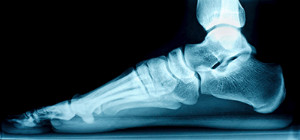 Patients who have flat feet are often aware of the absence of an arch. This is typically noticed while standing as the foot lies flat on the floor. The arch helps to balance the body’s weight between the feet and the legs and will generally determine a person’s walking style. People who have flat feet often notice their feet will roll inward or outward, and this is referred to as overpronation. The most common symptom that is associated with this condition is pain that is felt where the arch should be, and this may be a result of ligaments and muscles that have become strained. Existing medical conditions, which include arthritis or cerebral palsy may cause this condition to occur, in addition to genetic factors. If you have flat feet, it is suggested that you counsel with a podiatrist who can guide you toward proper treatment options.
Patients who have flat feet are often aware of the absence of an arch. This is typically noticed while standing as the foot lies flat on the floor. The arch helps to balance the body’s weight between the feet and the legs and will generally determine a person’s walking style. People who have flat feet often notice their feet will roll inward or outward, and this is referred to as overpronation. The most common symptom that is associated with this condition is pain that is felt where the arch should be, and this may be a result of ligaments and muscles that have become strained. Existing medical conditions, which include arthritis or cerebral palsy may cause this condition to occur, in addition to genetic factors. If you have flat feet, it is suggested that you counsel with a podiatrist who can guide you toward proper treatment options.
Flatfoot is a condition many people suffer from. If you have flat feet, contact Dr. Henry Miller from New Jersey. Our doctor will treat your foot and ankle needs.
What Are Flat Feet?
Flatfoot is a condition in which the arch of the foot is depressed and the sole of the foot is almost completely in contact with the ground. About 20-30% of the population generally has flat feet because their arches never formed during growth.
Conditions & Problems:
Having flat feet makes it difficult to run or walk because of the stress placed on the ankles.
Alignment – The general alignment of your legs can be disrupted, because the ankles move inward which can cause major discomfort.
Knees – If you have complications with your knees, flat feet can be a contributor to arthritis in that area.
Symptoms
Treatment
If you are experiencing pain and stress on the foot you may weaken the posterior tibial tendon, which runs around the inside of the ankle.
If you have any questions please feel free to contact our office located in Freehold, NJ . We offer the newest diagnostic and treatment technologies for all your foot and ankle needs.
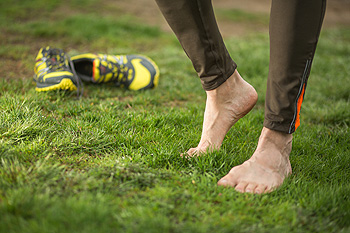 Most runners are aware of injuries that occur if proper stretching is not performed. It can be a result of having weak muscles, overtraining, or not paying attention to current aches and pains. A common injury, which consistent running may produce, often affects the heel of the foot. This is known as plantar fasciitis, and symptoms can include severe pain and discomfort in the heel. This may be prevented by wearing shoes that have adequate support, in addition to performing proper stretching techniques before beginning any running activity. Many patients also endure stress fractures, which often comes from engaging in high-impact running techniques. Prevention is possible by incorporating low-impact activities such as yoga and cycling. If you would like additional information about how running injuries affect the feet, it is suggested that you consult with a podiatrist.
Most runners are aware of injuries that occur if proper stretching is not performed. It can be a result of having weak muscles, overtraining, or not paying attention to current aches and pains. A common injury, which consistent running may produce, often affects the heel of the foot. This is known as plantar fasciitis, and symptoms can include severe pain and discomfort in the heel. This may be prevented by wearing shoes that have adequate support, in addition to performing proper stretching techniques before beginning any running activity. Many patients also endure stress fractures, which often comes from engaging in high-impact running techniques. Prevention is possible by incorporating low-impact activities such as yoga and cycling. If you would like additional information about how running injuries affect the feet, it is suggested that you consult with a podiatrist.
All runners should take extra precaution when trying to avoid injury. If you have any concerns about your feet, contact Dr. Henry Miller of New Jersey. Our doctor will treat your foot and ankle needs.
How to Prevent Running Injuries
There are a lot of mistakes a runner can make prior to a workout that can induce injury. A lot of athletes tend to overstretch before running, instead of saving those workouts for a post-run routine. Deep lunges and hand-to-toe hamstring pulls should be performed after a workout instead of during a warmup. Another common mistake is jumping into an intense routine before your body is physically prepared for it. You should try to ease your way into long-distance running instead of forcing yourself to rush into it.
More Tips for Preventing Injury
If you have any questions, please feel free to contact our office located in Freehold, NJ . We offer the newest diagnostic and treatment technologies for all your foot care needs.
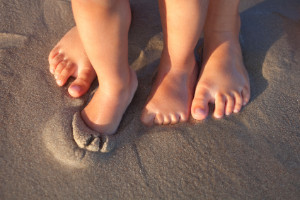 The human foot is comprised of several bones, ligaments, and muscles. It is important that our feet are flexible and stable so everyday activities can be completed with ease. Children may benefit at an early age from walking barefoot while indoors. This may help develop the grasping action in the toes, which can promote stability and muscle strength. Research has indicated the importance of measuring your child’s feet on a regular basis, and this is helpful in determining the correct shoe size. When choosing shoes for your child, it is important to ensure the foot is held firmly in place. This may be accomplished by choosing shoes that have laces or Velcro, which can hold the foot securely in the shoe. If you would like additional information on how to care for your child's feet, speak with your podiatrist.
The human foot is comprised of several bones, ligaments, and muscles. It is important that our feet are flexible and stable so everyday activities can be completed with ease. Children may benefit at an early age from walking barefoot while indoors. This may help develop the grasping action in the toes, which can promote stability and muscle strength. Research has indicated the importance of measuring your child’s feet on a regular basis, and this is helpful in determining the correct shoe size. When choosing shoes for your child, it is important to ensure the foot is held firmly in place. This may be accomplished by choosing shoes that have laces or Velcro, which can hold the foot securely in the shoe. If you would like additional information on how to care for your child's feet, speak with your podiatrist.
Making sure that your children maintain good foot health is very important as they grow. If you have any questions, contact Dr. Henry Miller of New Jersey. Our doctor can provide the care you need to keep you pain-free and on your feet.
Keeping Children's Feet Healthy
Having healthy feet during childhood can help prevent medical problems later in life, namely in the back and legs. As children grow, their feet require different types of care. Here are some things to consider...
Although babies do not walk yet, it is still very important to take care of their feet.
Avoid putting tight shoes or socks on his or her feet.
Allow the baby to stretch and kick his or her feet to feel comfortable.
As a toddler, kids are now on the move and begin to develop differently. At this age, toddlers are getting a feel for walking, so don’t be alarmed if your toddler is unsteady or ‘walks funny’.
As your child gets older, it is important to teach them how to take care of their feet.
Show them proper hygiene to prevent infections such as fungus.
Be watchful for any pain or injury.
Have all injuries checked by a doctor as soon as possible.
Comfortable, protective shoes should always be worn, especially at play.
If you have any questions please feel free to contact our office located in Freehold, NJ . We offer the newest diagnostic and treatment technologies for all your foot and ankle needs.
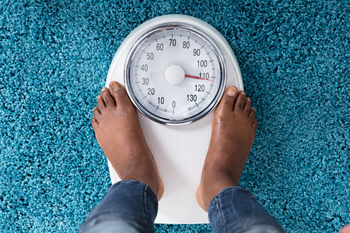 Patients who are overweight may experience heel pain; and in severe cases, this may lead to disability. Practicing a routine exercise regimen is generally helpful in shedding additional weight, but heel pain can prevent regular exercise from occurring. Plantar fasciitis can be common among overweight patients, and chronic foot pain may become worse if the weight should increase. The weight of the body is generally kept off the heels while cycling and swimming, and these aerobic exercises may be helpful in losing weight. If you are experiencing obesity and would like additional information about how excess weight can affect the feet, speak to your podiatrist.
Patients who are overweight may experience heel pain; and in severe cases, this may lead to disability. Practicing a routine exercise regimen is generally helpful in shedding additional weight, but heel pain can prevent regular exercise from occurring. Plantar fasciitis can be common among overweight patients, and chronic foot pain may become worse if the weight should increase. The weight of the body is generally kept off the heels while cycling and swimming, and these aerobic exercises may be helpful in losing weight. If you are experiencing obesity and would like additional information about how excess weight can affect the feet, speak to your podiatrist.
The more you weigh, the harder your feet must work to support your body. If you’re an obese individual and are concerned about your feet, contact Dr. Henry Miller from New Jersey. Our doctor can provide the care you need to keep you pain-free and on your feet.
Obesity and Your Feet
People who are overweight are putting more pressure on their ankles, knees, and hips as well as their feet. This unfortunately can lead to variety of different issues.
Problems & Complications Stemming from Obesity
If you have any questions, please feel free to contact our office located in Freehold, NJ . We offer the newest diagnostic and treatment technologies for all your foot care needs.
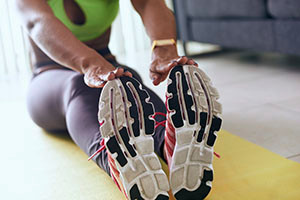 People who enjoy the sport of running or jogging may be familiar with uncomfortable running injuries. The runner may be temporarily forced to cease running as a result of these injuries. Research has shown there are methods that can be implemented, which may prevent running injuries. These may include gradually increasing the miles and intensity, which may be accomplished with a training schedule. Additionally, wearing running shoes that fit correctly may help painful injuries from occurring, and performing frequent stretches may help the feet to remain limber and flexible. Many runners find it beneficial to maintain proper form and posture while running and practicing core exercises may help to strengthen the overall body. If you would like to learn about how to prevent running injuries, it is suggested that you speak to a podiatrist who can provide you with additional information.
People who enjoy the sport of running or jogging may be familiar with uncomfortable running injuries. The runner may be temporarily forced to cease running as a result of these injuries. Research has shown there are methods that can be implemented, which may prevent running injuries. These may include gradually increasing the miles and intensity, which may be accomplished with a training schedule. Additionally, wearing running shoes that fit correctly may help painful injuries from occurring, and performing frequent stretches may help the feet to remain limber and flexible. Many runners find it beneficial to maintain proper form and posture while running and practicing core exercises may help to strengthen the overall body. If you would like to learn about how to prevent running injuries, it is suggested that you speak to a podiatrist who can provide you with additional information.
Exercising your feet regularly with the proper foot wear is a great way to prevent injuries. If you have any concerns about your feet, contact Dr. Henry Miller of New Jersey. Our doctor will treat your foot and ankle needs.
How to Prevent Running Injuries
Many common running injuries are caused by overuse and overtraining. When the back of the kneecap starts wearing out and starts causing pain in your knee, this is commonly referred to as runner’s knee. Runner’s knee is a decrease in strength in your quadriceps and can occur if you’re not wearing properly fitted or supporting shoes. To prevent runner’s knee, focusing on hip strengthening is a good idea, as well as strengthening your quads to keep the kneecaps aligned.
What Are Some Causes of Running Injuries?
- One cause of a common running injury is called iliotibial band syndrome.
- Plantar fasciitis is also another common injury.
- Stress fractures can occur from overtraining, lack of calcium, or even your running style.
Best Ways to Prevent Running Injuries
- Wear footwear that fits properly and suits your running needs.
- Running shoes are the only protective gear that runners have to safeguard them from injury.
- Make a training schedule. Adding strengthening exercises as well as regular stretching can help keep you strong and limber and can lessen the possibility of injuries.
- Stretching keeps muscles limber; this will help you gain better flexibility.
If you have any questions please feel free to contact our office located in Freehold, NJ . We offer the newest diagnostic and treatment technologies for all your foot and ankle needs.